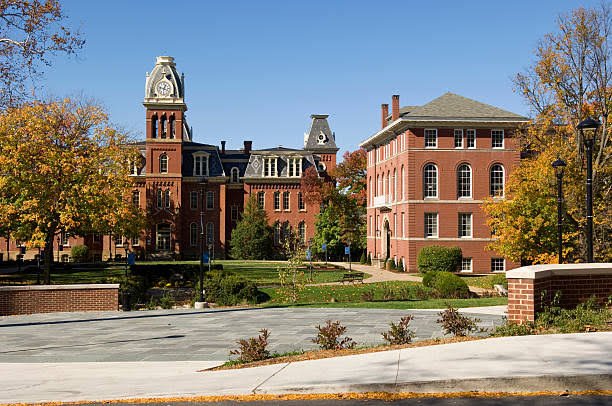
WVU Plunged into Scandal as Secret Experiments Exposed
In a stunning revelation that has rocked West Virginia University (WVU), leaked documents have uncovered a series of unauthorized human experiments conducted on students under the guise of psychological research. According to whistleblower reports, a covert department within the university’s behavioral sciences wing conducted mind-altering drug trials without full consent, raising serious ethical and legal concerns. The documents, dated between 2019 and 2024, suggest at least 37 students were involved in these experiments, many of whom were promised extra credit and financial aid in exchange for their participation—without ever knowing the full extent of what was being administered.
Sources close to the investigation revealed that these trials were carried out in a secluded basement laboratory in Woodburn Hall, where students were allegedly exposed to experimental compounds designed to induce paranoia, hallucinations, and heightened suggestibility. Several students reported vivid nightmares, memory lapses, and altered personalities following their participation. One former psychology major, who spoke on condition of anonymity, said, “They told us it was a study on sleep cycles, but I woke up in a padded room and couldn’t recall how I got there.”
The university’s leadership initially denied knowledge of the experiments, but internal emails obtained by The Charleston Gazette-Mail suggest that senior faculty and at least one vice president were aware of the research and worked to keep it off official records. Even more disturbing are claims that the data collected was being sold to private pharmaceutical companies without the subjects’ knowledge, violating numerous federal regulations and university policy.
The U.S. Department of Education and the FDA have since launched a joint investigation, freezing several federal grants awarded to WVU. A preliminary audit uncovered financial discrepancies amounting to nearly $8 million in misallocated research funds. The university’s president, Dr. E. Gordon Gee, has not commented publicly, but internal sources say a resignation may be imminent amid growing public outcry and multiple lawsuits from former students and their families.
In one chilling case, the parents of sophomore biology student Danielle Harris claim their daughter’s behavior changed drastically after participating in what she thought was a sleep study. “She started hearing voices,” her mother told reporters. “We begged the university for answers, and they said it was stress. Now we know it was something much worse.” Danielle was later diagnosed with acute psychosis and has since withdrawn from school.
Shockwaves have also hit the wider academic community, as WVU was a respected institution with over 150 years of research legacy. Several prestigious academic partnerships, including one with Johns Hopkins University, have been suspended pending further review. Alumni have expressed outrage, and donations to the university’s foundation have plummeted in recent weeks.
Adding a bizarre twist to the already disturbing saga, a cache of handwritten notebooks recovered from the lab detail theories about “behavioral reprogramming” and “mass cognitive control,” referencing Cold War-era CIA tactics like MK-Ultra. Investigators are now probing whether any faculty involved had links to past government projects or intelligence agencies, sparking conspiracy theories and fears of deeper institutional corruption.
As the scandal deepens, West Virginia University faces a credibility crisis of historic proportions. The state legislature has scheduled emergency hearings, and students are demanding justice through ongoing protests on campus. What was once regarded as one of the Appalachian region’s crown jewels is now engulfed in a firestorm of betrayal, secrecy, and potentially criminal conduct—leaving many to wonder how far the rot truly goes.




